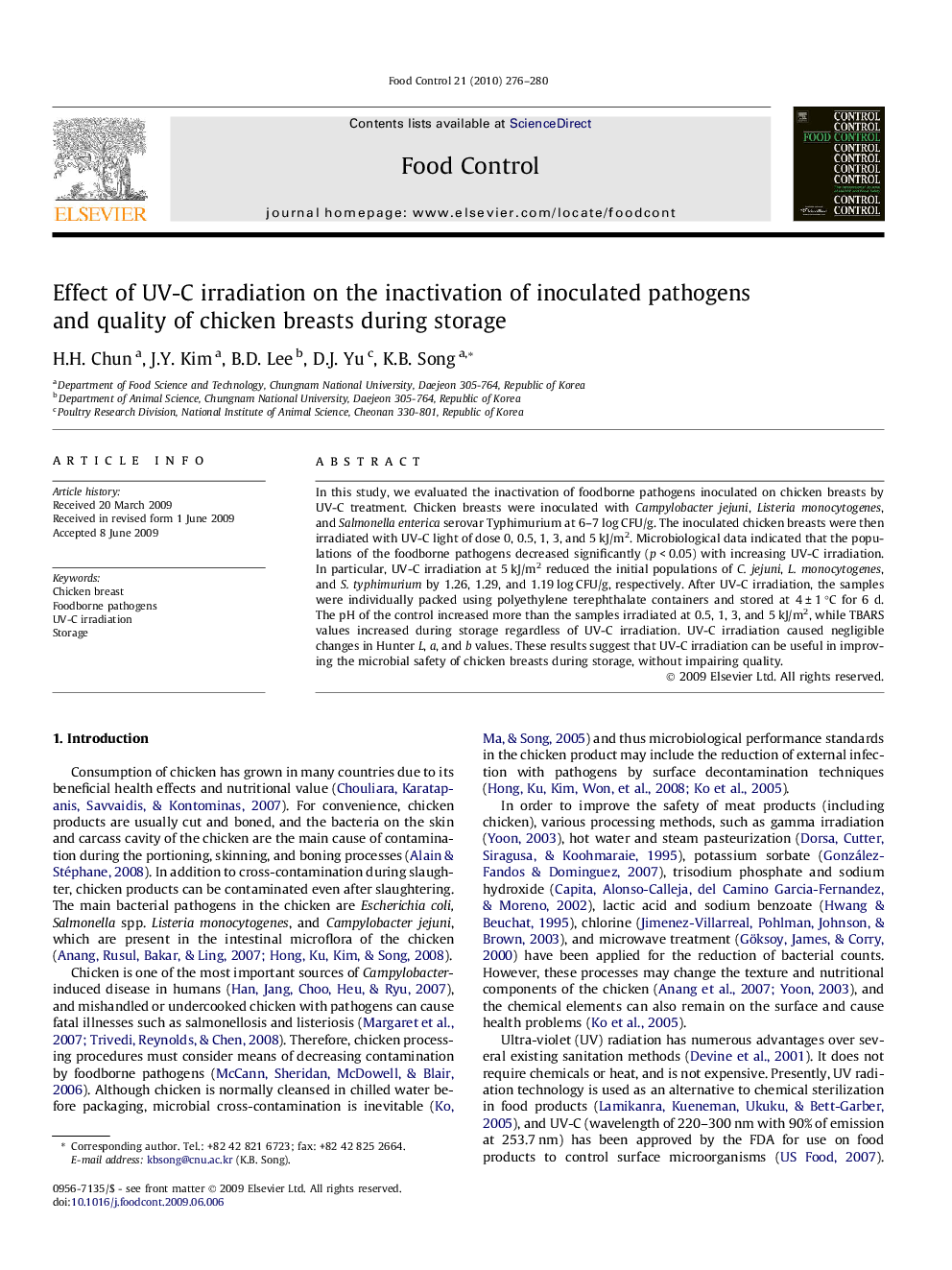| Article ID | Journal | Published Year | Pages | File Type |
|---|---|---|---|---|
| 4560030 | Food Control | 2010 | 5 Pages |
In this study, we evaluated the inactivation of foodborne pathogens inoculated on chicken breasts by UV-C treatment. Chicken breasts were inoculated with Campylobacter jejuni, Listeria monocytogenes, and Salmonella enterica serovar Typhimurium at 6–7 log CFU/g. The inoculated chicken breasts were then irradiated with UV-C light of dose 0, 0.5, 1, 3, and 5 kJ/m2. Microbiological data indicated that the populations of the foodborne pathogens decreased significantly (p < 0.05) with increasing UV-C irradiation. In particular, UV-C irradiation at 5 kJ/m2 reduced the initial populations of C. jejuni, L. monocytogenes, and S. typhimurium by 1.26, 1.29, and 1.19 log CFU/g, respectively. After UV-C irradiation, the samples were individually packed using polyethylene terephthalate containers and stored at 4 ± 1 °C for 6 d. The pH of the control increased more than the samples irradiated at 0.5, 1, 3, and 5 kJ/m2, while TBARS values increased during storage regardless of UV-C irradiation. UV-C irradiation caused negligible changes in Hunter L, a, and b values. These results suggest that UV-C irradiation can be useful in improving the microbial safety of chicken breasts during storage, without impairing quality.
